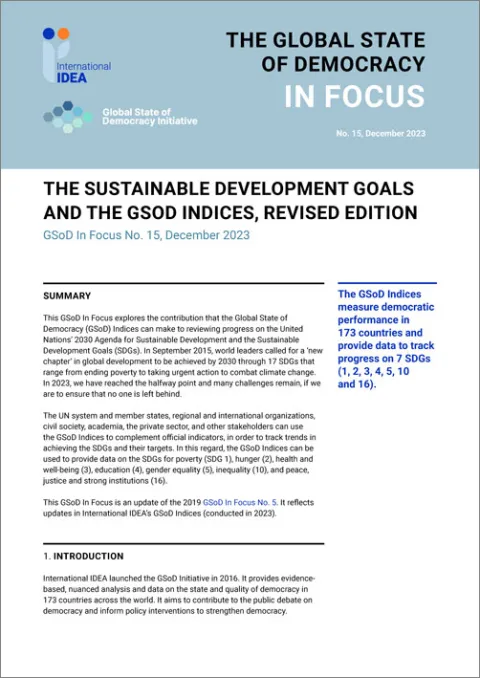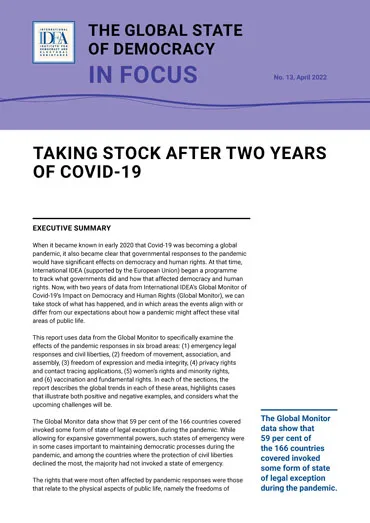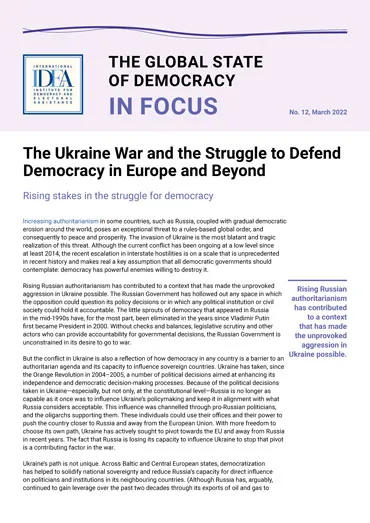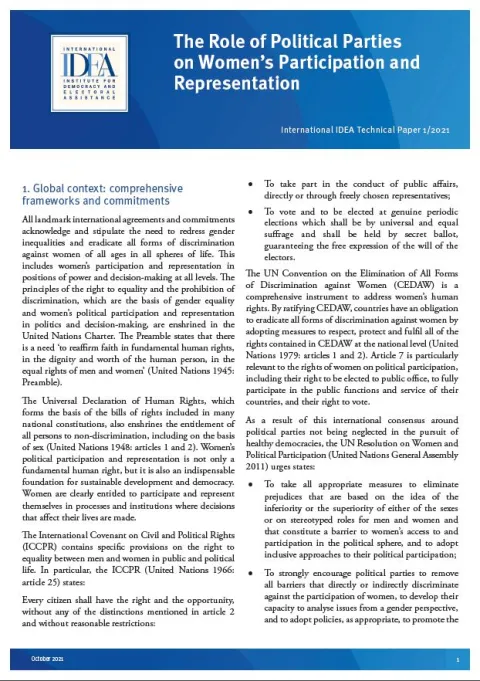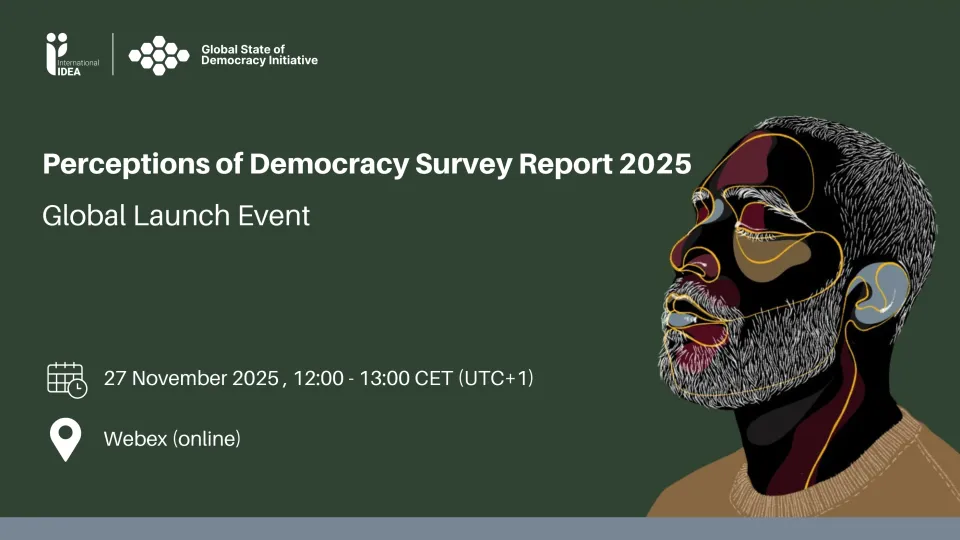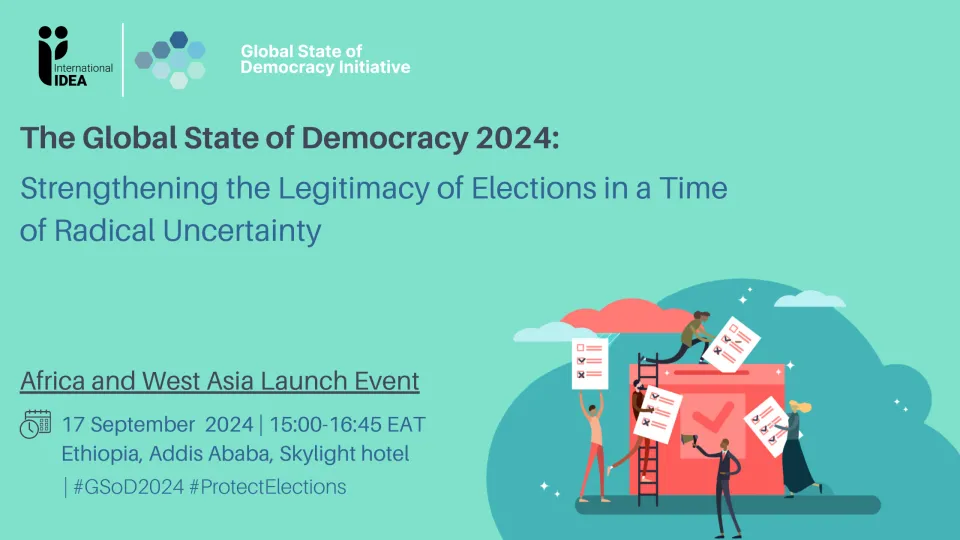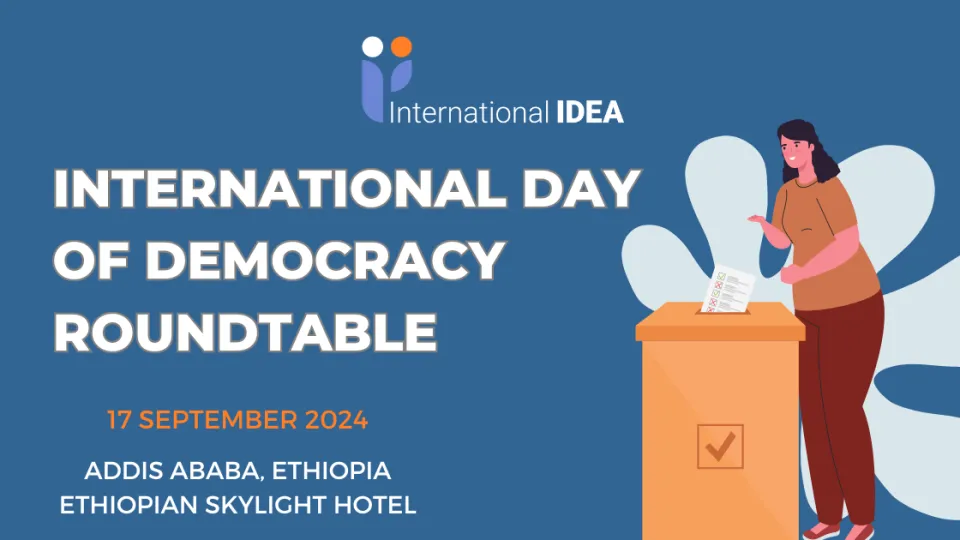The Sustainable Development Goals and the Global State of Democracy Indices
This issue of the GSoD In Focus explores the contribution that the Global State of Democracy (GSoD) Indices can make to the review of progress on the United Nations’ 2030 Agenda for Sustainable Development and the Sustainable Development Goals (SDGs).
The GSoD Indices can be used to complement the official indicators of the SDGs, to acquire in-depth knowledge on trends in achieving the specific targets of individual SDGs. In this regard, the GSoD Indices can be used to provide data on the SDGs for poverty (SDG 1), hunger (2), health and wellbeing (3), education (4), gender equality (5), inequalities (10), sustainable cities and communities (11), peace, justice and institutions (16), and partnerships for the goals (17), as well as across the 2030 Agenda for Sustainable Development.
In November 2017 International IDEA launched the first edition of a new biennial report, The Global State of Democracy. The report provided evidence-based analysis and data on the global and regional state of democracy based on the GSoD Indices, which now covers a total of 158 countries for the period 1975–2017. More detailed analyses of regional findings will be included in the second edition of The Global State of Democracy, which will be published in November 2019.
Details
Contents
Summary
1. Introduction
2. International IDEA, democracy and the Sustainable Development Goals
3. The Global State of Democracy Indices
4. How GSoD Indices contribute to monitoring SDGs
5. Measuring specific SDG goals and targets
6. The importance of democratic accountability
References
Give us feedback
Do you have a question or feedback about this publication? Leave us your feedback, and we’ll get back to you
Send feedbackThe Sustainable Development Goals and the Global State of Democracy Indices
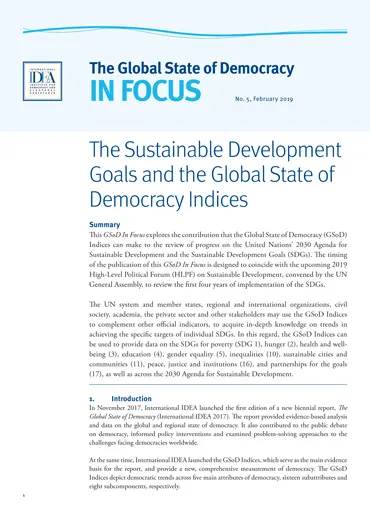
| Total views | 13149 |
|---|---|
| Downloads | 30 |
| Rating |
Give us feedback
Do you have a question or feedback about this publication? Leave us your feedback, and we’ll get back to you
Send feedback